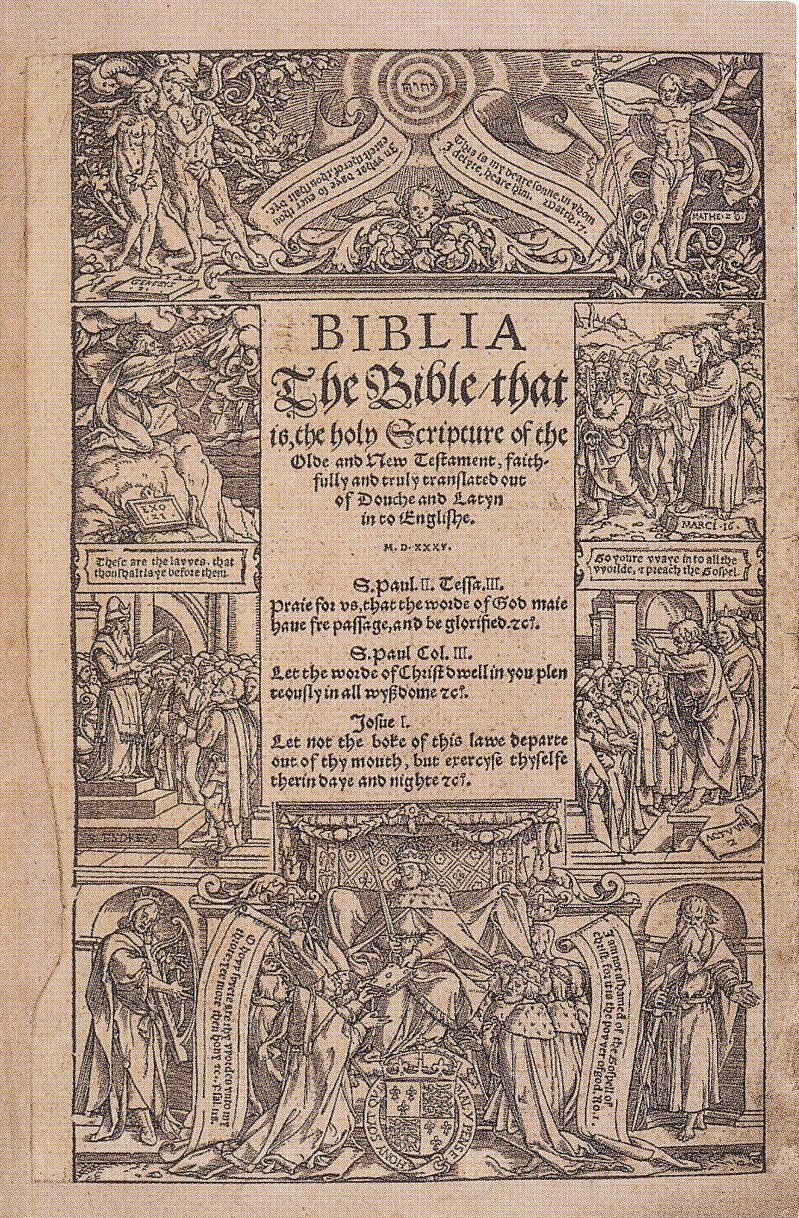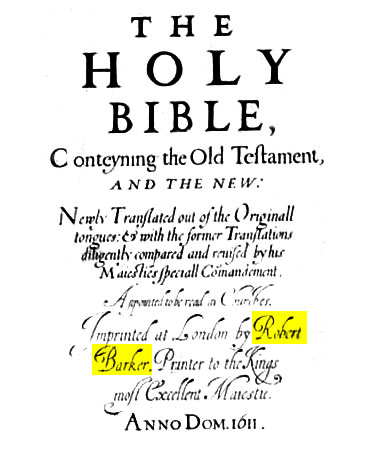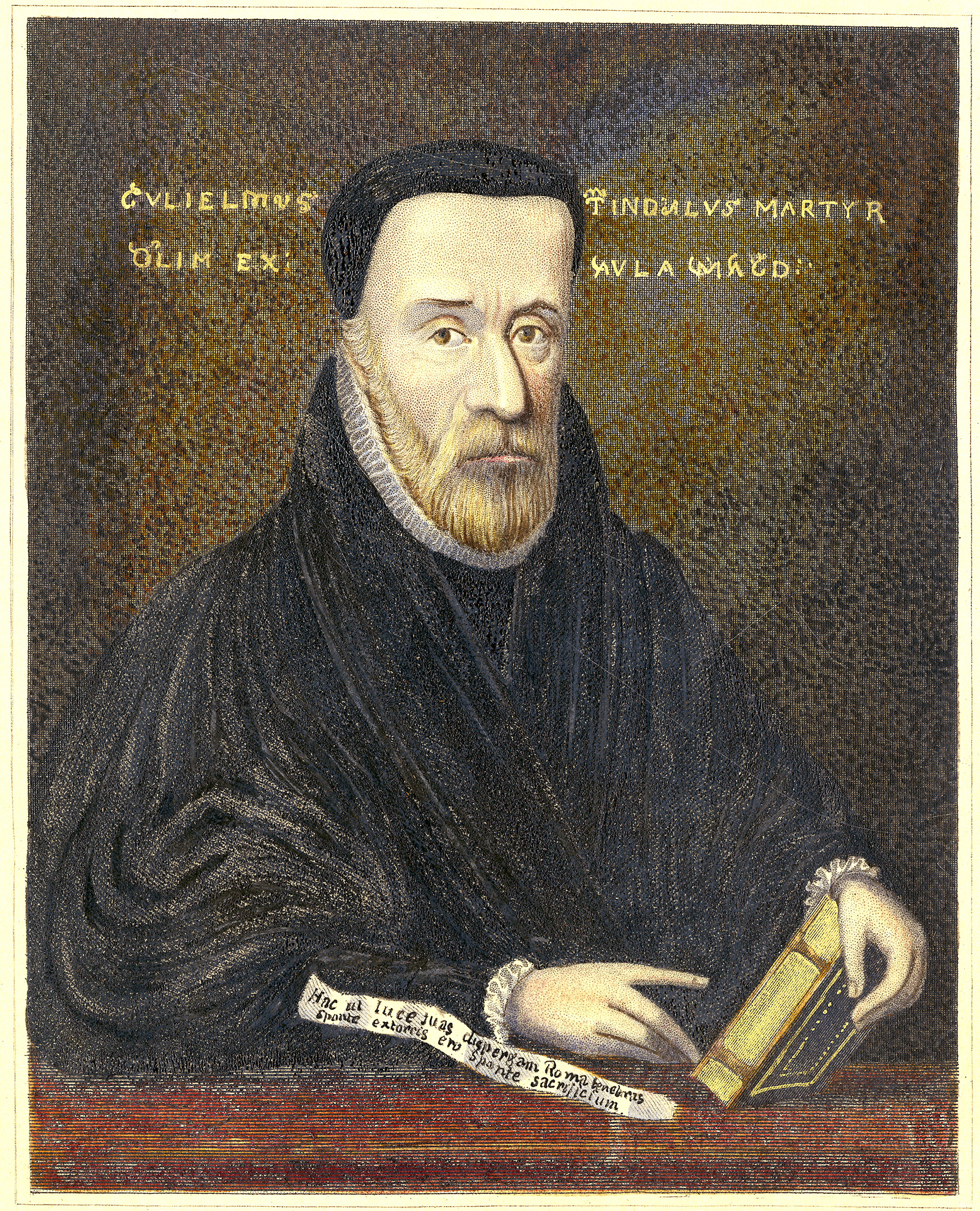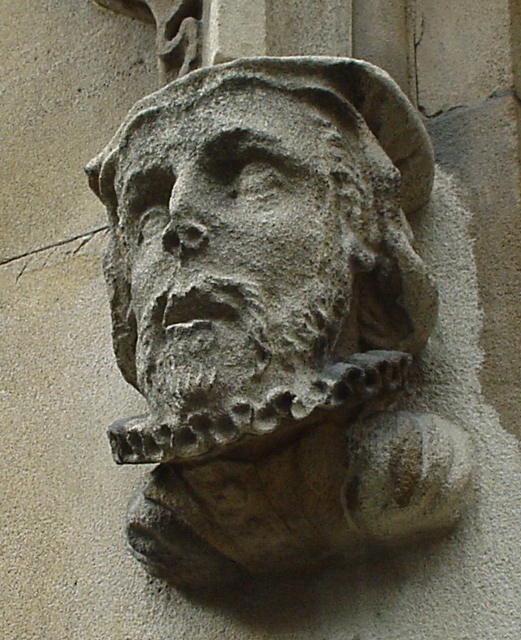|
Early Modern English Bible Translations
Early Modern English Bible translations are those translations of the Bible which were made between about 1500 and 1800, the period of Early Modern English. This was the first major period of Bible translation into the English language including the King James Version and Douai Bibles. The Reformation and Counter-Reformation led to the need for Bibles in the vernacular with competing groups each producing their own versions. Although Wycliffe's Bible had preceded the Protestant Reformation, England was actually one of the last countries in Europe to have a printed vernacular Bible. There were several reasons for this. One was that Henry VIII wanted to avoid the propagation of heresies—a concern subsequently justified by the marginal notes printed in Tyndale's New Testament and the Geneva Bible, for example. Another was the Roman Catholic doctrine of Magisterium which describes the Church as the final authority in the interpretation of the Scriptures; in the volatile years of ... [...More Info...] [...Related Items...] OR: [Wikipedia] [Google] [Baidu] |
Bible
The Bible (from Koine Greek , , 'the books') is a collection of religious texts or scriptures that are held to be sacred in Christianity, Judaism, Samaritanism, and many other religions. The Bible is an anthologya compilation of texts of a variety of forms originally written in Hebrew, Aramaic, and Koine Greek. These texts include instructions, stories, poetry, and prophecies, among other genres. The collection of materials that are accepted as part of the Bible by a particular religious tradition or community is called a biblical canon. Believers in the Bible generally consider it to be a product of divine inspiration, but the way they understand what that means and interpret the text can vary. The religious texts were compiled by different religious communities into various official collections. The earliest contained the first five books of the Bible. It is called the Torah in Hebrew and the Pentateuch (meaning ''five books'') in Greek; the second oldest part was a coll ... [...More Info...] [...Related Items...] OR: [Wikipedia] [Google] [Baidu] |
Robert Barker (printer)
Robert Barker (died 1643) was a printer to James I of England and son of Christopher Barker, who had been printer to Queen Elizabeth I. He was most notably the printer of the King James Bible, one of the most influential and important books ever printed in the English language. He and co-publisher Martin Lucas published the infamous "Wicked Bible", which contained a typographical error omitting the word ''not'' from the sentence ''Thou shalt not commit adultery''. Printing career After working in the printing business for some time, Barker began working with his father's printing company in 1589 and inherited the printing house on 29 November 1599 upon his father's death. Much of his printing work was of an official nature, including prayer books, scriptures, and law books. King James Bible In 1611, Robert Barker printed the first edition of the King James Bible. Although it was called "Authorized" it was not actually "authorized" by the king, who did take some interest in t ... [...More Info...] [...Related Items...] OR: [Wikipedia] [Google] [Baidu] |
Martin Luther
Martin Luther (; ; 10 November 1483 – 18 February 1546) was a German priest, theologian, author, hymnwriter, and professor, and Order of Saint Augustine, Augustinian friar. He is the seminal figure of the Reformation, Protestant Reformation and the namesake of Lutheranism. Luther was ordained to the Priesthood in the Catholic Church, priesthood in 1507. He came to reject several teachings and practices of the Catholic Church, Roman Catholic Church; in particular, he disputed the view on indulgences. Luther proposed an academic discussion of the practice and efficacy of indulgences in his ''Ninety-five Theses'' of 1517. His refusal to renounce all of his writings at the demand of Pope Leo X in 1520 and the Charles V, Holy Roman Emperor, Holy Roman Emperor Charles V at the Diet of Worms in 1521 resulted in his Excommunication (Catholic Church)#History, excommunication by the pope and condemnation as an Outlaw#In other countries, outlaw by the Holy Roman Emper ... [...More Info...] [...Related Items...] OR: [Wikipedia] [Google] [Baidu] |
Cambridge
Cambridge ( ) is a university city and the county town in Cambridgeshire, England. It is located on the River Cam approximately north of London. As of the 2021 United Kingdom census, the population of Cambridge was 145,700. Cambridge became an important trading centre during the Roman and Viking ages, and there is archaeological evidence of settlement in the area as early as the Bronze Age. The first town charters were granted in the 12th century, although modern city status was not officially conferred until 1951. The city is most famous as the home of the University of Cambridge, which was founded in 1209 and consistently ranks among the best universities in the world. The buildings of the university include King's College Chapel, Cavendish Laboratory, and the Cambridge University Library, one of the largest legal deposit libraries in the world. The city's skyline is dominated by several college buildings, along with the spire of the Our Lady and the English Martyrs ... [...More Info...] [...Related Items...] OR: [Wikipedia] [Google] [Baidu] |
William Tyndale
William Tyndale (; sometimes spelled ''Tynsdale'', ''Tindall'', ''Tindill'', ''Tyndall''; – ) was an English biblical scholar and linguist who became a leading figure in the Protestant Reformation in the years leading up to his execution. He is well known as a translator of the Bible into English, and was influenced by the works of prominent Protestant Reformers such as Martin Luther. Luther's translation of the Christian Bible into German appeared in 1522. Tyndale's translation was the first English Bible to draw directly from Hebrew and Greek texts, the first English translation to take advantage of the printing press, the first of the new English Bibles of the Reformation, and the first English translation to use ''Jehovah'' ("Iehouah") as God's name as preferred by English Protestant Reformers. It was taken to be a direct challenge to the hegemony both of the Catholic Church and of those laws of England maintaining the church's position. The work of Tyndale contin ... [...More Info...] [...Related Items...] OR: [Wikipedia] [Google] [Baidu] |
Tyndale Bible - Gospel Of John
William Tyndale (; sometimes spelled ''Tynsdale'', ''Tindall'', ''Tindill'', ''Tyndall''; – ) was an English biblical scholar and linguist who became a leading figure in the Protestantism, Protestant Reformation in the years leading up to his execution. He is well known as a Tyndale Bible, translator of the Bible into English, and was influenced by the works of prominent Protestant Reformers such as Martin Luther. Luther Bible, Luther's translation of the Christian Bible into German appeared in 1522. Tyndale's translation was the first English Bible to draw directly from Hebrew and Greek texts, the first English translation to take advantage of the printing press, the first of the new English Bibles of the Reformation, and the first English translation to use ''Jehovah'' ("Iehouah") as God's name as preferred by English Protestant Reformers. It was taken to be a direct challenge to the hegemony both of the Catholic Church and of those laws of England maintaining the chu ... [...More Info...] [...Related Items...] OR: [Wikipedia] [Google] [Baidu] |
Antwerp
Antwerp (; nl, Antwerpen ; french: Anvers ; es, Amberes) is the largest city in Belgium by area at and the capital of Antwerp Province in the Flemish Region. With a population of 520,504,Statistics Belgium; ''Loop van de bevolking per gemeente'' (Excel file) Population of all municipalities in Belgium, . Retrieved 1 November 2017. it is the most populous municipality in Belgium, and with a metropolitan population of around 1,200,000 people, it is the second-largest metrop ... [...More Info...] [...Related Items...] OR: [Wikipedia] [Google] [Baidu] |
Book Of Lamentations
The Book of Lamentations ( he, אֵיכָה, , from its incipit meaning "how") is a collection of poetic laments for the destruction of Jerusalem in 586 BCE. In the Hebrew Bible it appears in the Ketuvim ("Writings") as one of the Five Megillot (or "Five Scrolls") alongside the Song of Songs, Book of Ruth, Ecclesiastes and the Book of Esther although there is no set order. In the Christian Old Testament it follows the Book of Jeremiah, as the prophet Jeremiah is its traditional author. However, according to modern scholarship, while the destruction of Jerusalem by Babylon in 586/7 BCE forms the background to the poems, they were probably not written by Jeremiah. Most likely, each of the book's chapters was written by a different anonymous poet, and they were then joined to form the book. Some motifs of a traditional Mesopotamian "city lament" are evident in this book, such as mourning the desertion of the city by God, its destruction, and the ultimate return of the divin ... [...More Info...] [...Related Items...] OR: [Wikipedia] [Google] [Baidu] |
Jeremiah
Jeremiah, Modern: , Tiberian: ; el, Ἰερεμίας, Ieremíās; meaning " Yah shall raise" (c. 650 – c. 570 BC), also called Jeremias or the "weeping prophet", was one of the major prophets of the Hebrew Bible. According to Jewish tradition, Jeremiah authored the Book of Jeremiah, the Books of Kings and the Book of Lamentations, with the assistance and under the editorship of Baruch ben Neriah, his scribe and disciple. In addition to proclaiming many prophecies of Yahweh, the God of Israel, the Book of Jeremiah goes into detail regarding the prophet's private life, his experiences, and his imprisonment. Judaism and Christianity both consider the Book of Jeremiah part of their canon. Judaism regards Jeremiah as the second of the major prophets. Christianity holds him to be a prophet and his words are quoted in the New Testament. Islam also regards Jeremiah as a prophet and his narrative is recounted in Islamic tradition. Biblical narrative Chronology Je ... [...More Info...] [...Related Items...] OR: [Wikipedia] [Google] [Baidu] |
Ecclesiastes
Ecclesiastes (; hbo, קֹהֶלֶת, Qōheleṯ, grc, Ἐκκλησιαστής, Ekklēsiastēs) is one of the Ketuvim ("Writings") of the Hebrew Bible and part of the Wisdom literature of the Christian Old Testament. The title commonly used in English is a Latin transliteration of the Greek translation of the Hebrew word ( or ). An unnamed author introduces "The words of Kohelet, son of David, king in Jerusalem" ( 1:1) and does not use his own voice again until the final verses (12:9–14), where he gives his own thoughts and summarises the statements of Kohelet; the main body of the text is ascribed to Kohelet himself. Kohelet proclaims (1:2) "Vanity of vanities! All is futile!"; the Hebrew word , "vapor", can figuratively mean "insubstantial", "vain", "futile", or "meaningless". Given this, the next verse presents the basic existential question with which the rest of the book is concerned: "What profit hath a man for all his toil, in which he toils under the sun?", expre ... [...More Info...] [...Related Items...] OR: [Wikipedia] [Google] [Baidu] |
Book Of Proverbs
The Book of Proverbs ( he, מִשְלֵי, , "Proverbs (of Solomon)") is a book in the third section (called Ketuvim) of the Hebrew Bible and a book of the Christian Old Testament. When translated into Greek and Latin, the title took on different forms: in the Greek Septuagint (LXX) it became (, "Proverbs"); in the Latin Vulgate the title was , from which the English name is derived. Proverbs is not merely an anthology but a "collection of collections" relating to a pattern of life which lasted for more than a millennium. It is an example of the biblical wisdom literature, and raises questions of values, moral behaviour, the meaning of human life, and right conduct, and its theological foundation is that "the fear of God (meaning submission to the will of God) is the beginning of wisdom". Wisdom is praised for her role in creation; God acquired her before all else, and through her he gave order to chaos; and since humans have life and prosperity by conforming to the order of cre ... [...More Info...] [...Related Items...] OR: [Wikipedia] [Google] [Baidu] |
Isaiah
Isaiah ( or ; he, , ''Yəšaʿyāhū'', "God is Salvation"), also known as Isaias, was the 8th-century BC Israelite prophet after whom the Book of Isaiah is named. Within the text of the Book of Isaiah, Isaiah himself is referred to as "the prophet", but the exact relationship between the Book of Isaiah and the actual prophet Isaiah is complicated. The traditional view is that all 66 chapters of the book of Isaiah were written by one man, Isaiah, possibly in two periods between 740 BC and c. 686 BC, separated by approximately 15 years, and that the book includes dramatic prophetic declarations of Cyrus the Great in the Bible, acting to restore the nation of Israel from Babylonian captivity. Another widely held view is that parts of the first half of the book (chapters 1–39) originated with the historical prophet, interspersed with prose commentaries written in the time of King Josiah a hundred years later, and that the remainder of the book dates from immediately before an ... [...More Info...] [...Related Items...] OR: [Wikipedia] [Google] [Baidu] |

.jpg)









